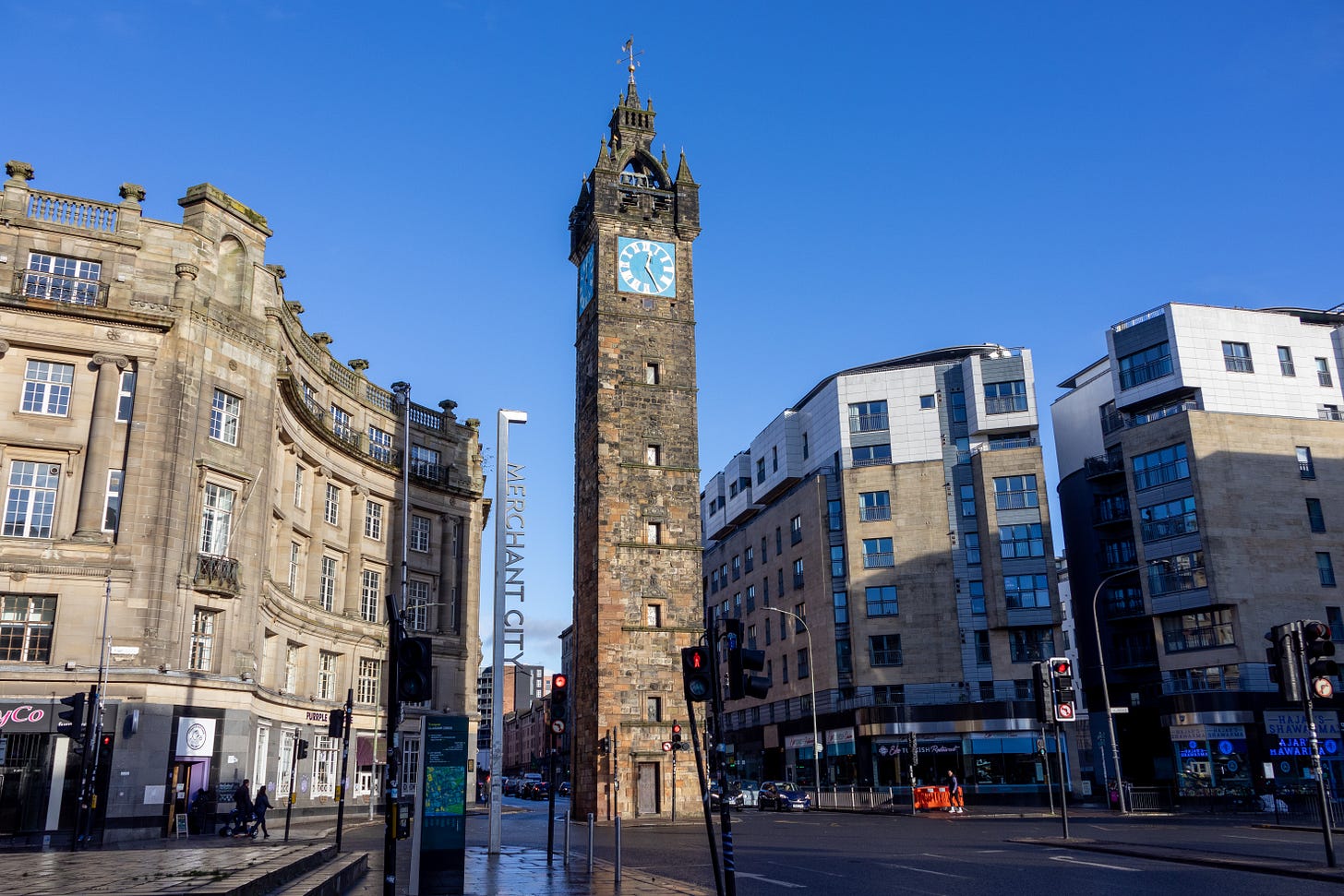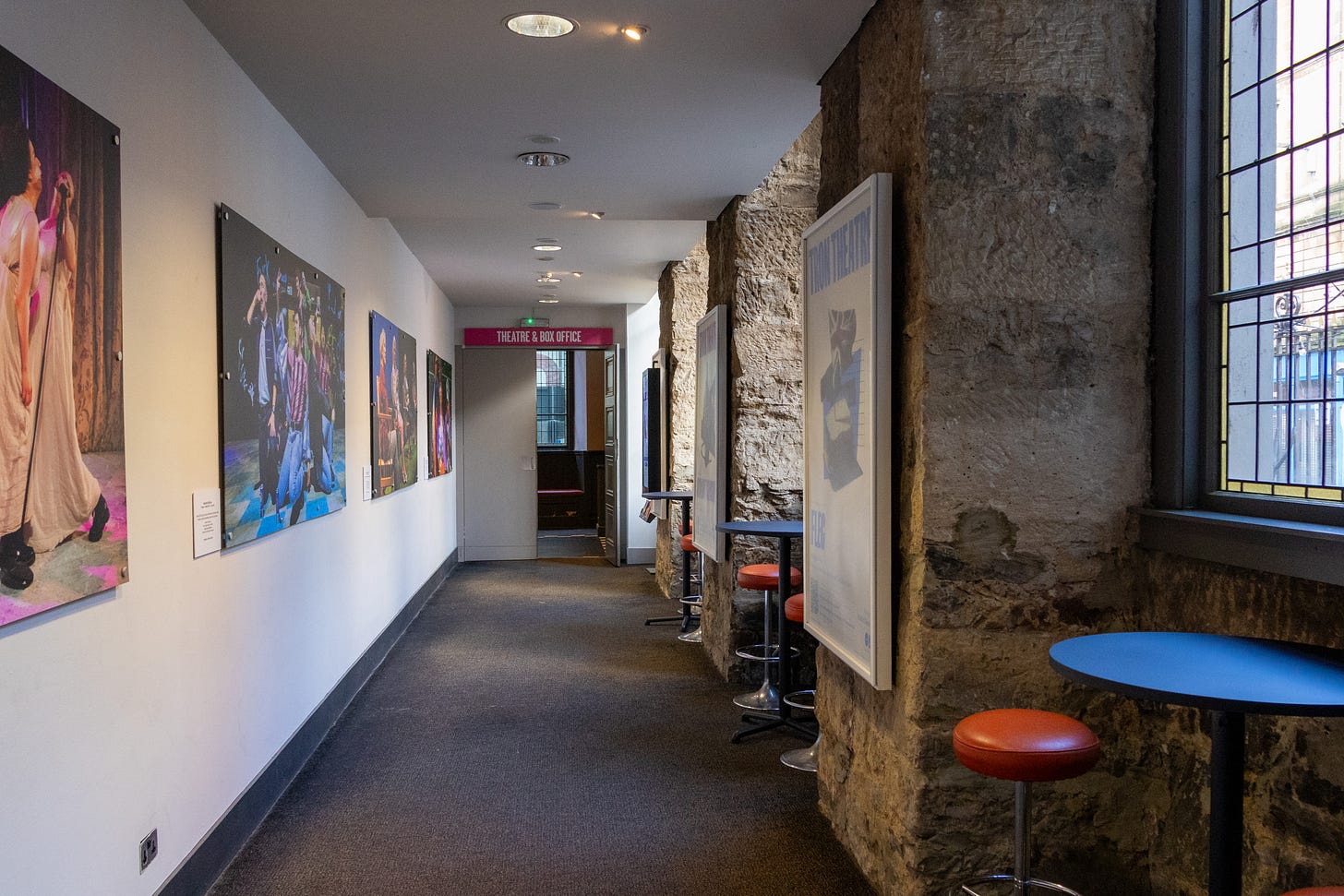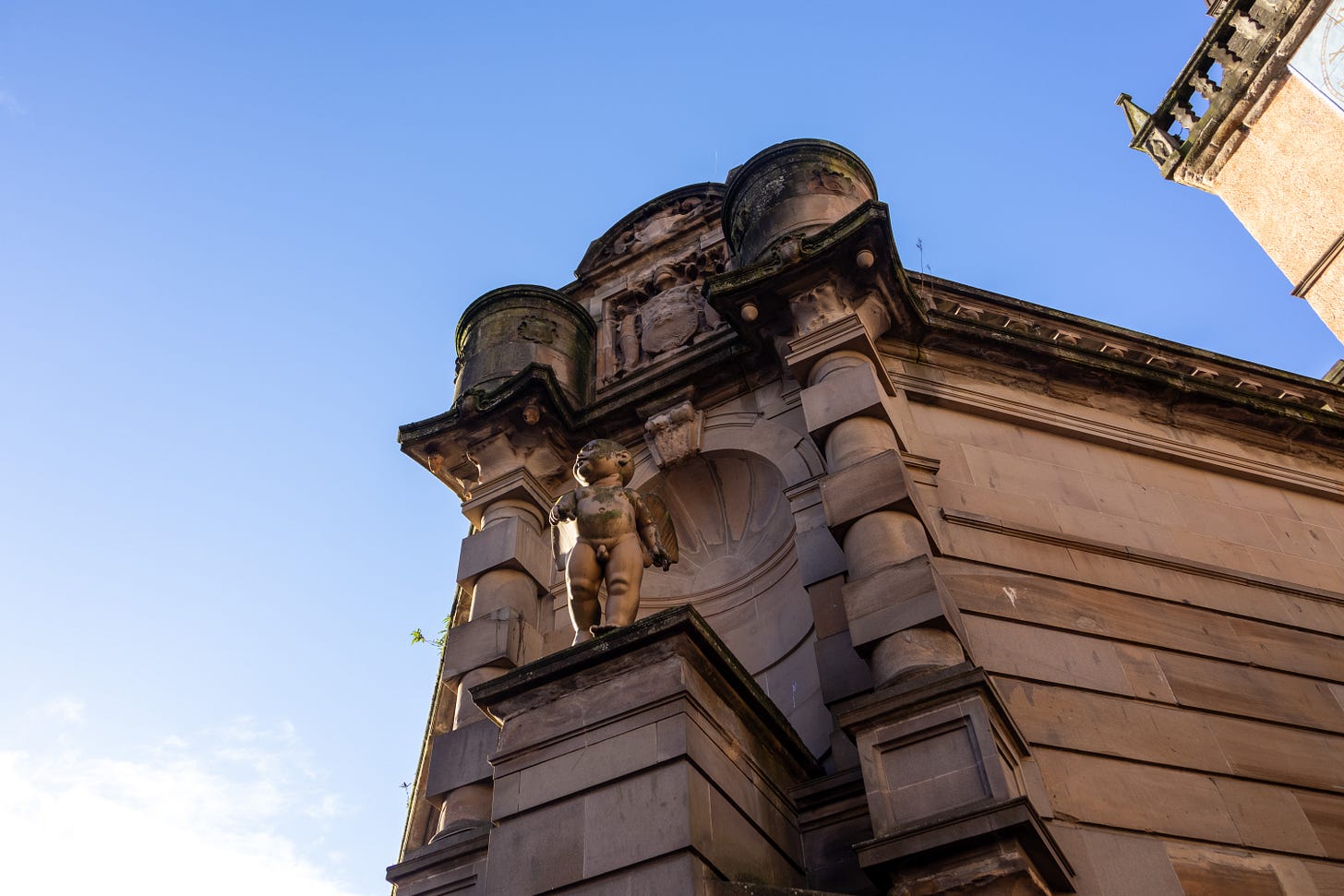The Splash on Saturday - The Tron Theatre: Glasgow’s Cultural and Historic Gem
A Storied Landmark with a Bold Vision for the Future

Exclusive by Gary Fanning
Nestled in the heart of Trongate, the Tron Theatre is not only one of Glasgow’s most important cultural venues but also a site of immense historical significance.
Despite its rich heritage and reputation as a powerhouse of Scottish theatre, many Glaswegians remain unaware of its remarkable past.
A Storied Past
The Tron is the third-oldest building in Glasgow, predated only by Glasgow Cathedral and the Lord Provost’s House.
It originally served as a weighing station for merchants bringing goods up the Clyde.
Over the centuries, the building has had many lives—it has been both a Protestant and Catholic church, the city’s first police station, and even the last collection point for letters bound for London.
It has also survived two devastating fires and underwent significant reconstruction.
Interestingly, its name does not derive from its iconic archway but rather from the Tron, a beam used for weighing goods.
By the 18th century, the structure evolved into an archway, a transformation driven by city planning.
“The council wanted to knock it down to widen the pavement for horse and carts,” explains Patricia Stead, the Tron Theatre’s Executive Director. “They weren’t allowed to demolish it, so they removed the doors and turned it into an archway.”
Later, the Tron Tower was added, housing the UK’s first gas-lit clock—still the only chiming clock in the area.
The tower also features an image of St. Mungo holding a fish and a bell. “He’s supposed to move every time the clock strikes, but he doesn’t,” Ms Stead notes. “Restoring him is part of our 850 Project to bring this historic feature back to life.”
A Hidden Treasure in Plain Sight
Despite its historical and cultural significance, the Tron Theatre struggles with visibility. “There isn’t a single sign in Glasgow pointing to the Tron Theatre,” Ms Stead laments. “People walk past every day and assume it’s just an old church. If they knew its history, we’d have a trail of tourists coming through.”
While the Tron enjoys an outstanding reputation beyond Glasgow—having launched the careers of stars like Alan Cumming, Iain Glen, Siobhan Redmond, Elaine C. Smith, Dorothy Paul, Una McLean, Craig Armstrong, and Peter Mullan—many locals remain unaware of its impact. “The Tron’s reputation outside Glasgow is far bigger than it is within the city,” Ms Stead says.
To change that, the theatre has ambitious plans. These include enhancing its street presence with improved signage, better lighting, and a larger digital screen showcasing short films about the Tron’s history and productions.
The team is also collaborating with VisitScotland and local tour operators to integrate the theatre more prominently into Glasgow’s tourism landscape.
A Commitment to Theatre and the Community
At its heart, the Tron remains dedicated to Scottish theatre. It continues to champion new writing and innovative productions while supporting emerging talent.
Its pantomime—consistently ranked among the UK’s best for smaller venues—sells out annually, with the upcoming production featuring Balamory’s Julie Nimmo already nearing full capacity of 230.
Beyond performances, the Tron plays a key role in nurturing young creatives and grassroots theatre.
Recently, it won two CATS (Critics’ Awards for Theatre in Scotland) for Best Production, Best Director, and Best Ensemble. Looking ahead, Stead is particularly excited about their production of Arthur Miller’s A View from the Bridge.
Overcoming Challenges
Despite its successes, the theatre faces ongoing challenges.
Its location means it regularly contends with vandalism and antisocial behaviour. During major city football celebrations, performances have even been cancelled due to safety concerns. “We want to be part of this community and look after our neighbours, but we also need to ensure our building and staff are protected,” Stead explains.
Still, the Tron remains resilient. “Glasgow’s history is extraordinary—you just have to look up to find its hidden treasures,” she says. “The Tron has been part of this city for centuries. We’re not just a theatre—we’re part of Glasgow’s story, and we want people to rediscover that.”
“We are not a rundown church,” Stead asserts. “We will bring back the glory. We won’t get anywhere without a vision and optimism.”
As the Tron Theatre continues to fight for its rightful place in Glasgow’s cultural and historical landscape, its supporters hope the city will rally behind it—securing its legacy for generations to come.
Enjoyed this story? Help keep The Splash going!
Independent, investigative journalism like this doesn’t happen without support. If you found this story valuable, insightful, or important, we need your help to keep The Splash alive.
This weekend, we’re aiming for five new paid subscribers—could you be one of them?
For just the price of a coffee each month, you’ll be directly supporting in-depth reporting that puts our community first. More subscribers mean more investigations, more stories that matter, and more accountability.
👉 Join us today and become a paid subscriber. Every sign-up makes a difference.
Thank you for being part of The Splash! 💙
Coming Tomorrow in The Sunday Splash – Not to Be Missed!
Glasgow’s Trongate, one of the city’s oldest districts, has long been overlooked—a place of rich history and creative potential, yet plagued by vacant shops, antisocial behaviour, and dwindling footfall.
But change is coming.
In tomorrow’s Sunday Splash, we dive into the movement to reclaim Trongate as a vibrant cultural hub. At the heart of this transformation is Patricia Stead, Executive Director of the Tron Theatre, who is leading efforts to revitalise the area while battling daily challenges of crime, safety, and neglect.
From independent businesses to the growing artist community, and from major redevelopment projects to the ongoing fight for a safer public space, this is a story of resilience, ambition, and the fight to bring Trongate back to life.
Don’t miss this exclusive deep dive into one of Glasgow’s most important regeneration stories—only in tomorrow’s Sunday Splash.
🔹 Make sure you’re subscribed so you don’t miss it!
.
.







